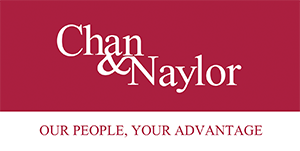Cash flow is the lifeblood of any business, especially for small businesses where financial margins are often tight. Effective cash flow management is crucial to ensuring that your business can meet its financial obligations, invest in growth, and ultimately succeed. However, many small business owners face significant cash flow challenges that can hinder their operations and growth prospects. This article aims to provide practical strategies that small business owners can implement to improve their cash flow management and secure long-term success.
What is Cash Flow?
Cash flow refers to the movement of money in and out of your business. It’s a measure of your company’s financial health, as it indicates whether your business can cover its expenses and continue operations. Unlike profit, which is the surplus after all expenses have been deducted from revenue, cash flow specifically tracks the timing of cash inflows and outflows. Understanding the cash flow cycle, which typically includes receiving payments from customers, paying suppliers, and managing operating costs, is essential for small business owners to maintain liquidity and avoid financial strain.
Practical Tips and Strategies to Improve Cash Flow Management
1. Improving Receivables
- Implement Stricter Credit Policies: Assess the creditworthiness of your customers before extending credit to minimise the risk of late payments or defaults.
- Encourage Prompt Payments: Offer discounts or incentives for early payments, and consider implementing late fees to encourage timely payments.
- Utilise Invoicing Software: Streamline your billing process with invoicing software that automates follow-ups and tracks payments, reducing the risk of delayed payments.
2. Managing Payables
- Negotiate Better Payment Terms: Work with suppliers to extend payment terms, allowing more time to pay without straining your cash flow.
- Align Payments with Cash Inflows: Schedule your payments to coincide with cash inflows to ensure that you have sufficient funds to cover expenses.
- Prioritise Critical Expenses: Focus on paying essential expenses first, such as payroll and key suppliers, to maintain operations while managing cash flow effectively.
3. Optimising Inventory Management
- Implement Just-in-Time Inventory: Adopt a just-in-time inventory system to reduce excess stock and free up cash.
- Regularly Review Inventory Levels: Continuously monitor and adjust inventory levels based on sales trends and forecasts to avoid overstocking or stockouts.
- Use Inventory Management Software: Leverage software to track inventory in real-time and predict future needs, improving cash flow efficiency.
4. Controlling Operational Costs
- Conduct Regular Expense Audits: Periodically review your expenses to identify and eliminate unnecessary costs.
- Implement Energy-Saving Practices: Reduce operational costs by adopting energy-efficient practices and technologies.
- Outsource Non-Core Activities: Consider outsourcing tasks that are not central to your business to reduce overhead costs.
5. Accessing Financing Options
- Explore Short-Term Financing Solutions: Use lines of credit or invoice factoring to bridge cash flow gaps during tough times.
- Use Business Loans and Grants: Seek out loans or grants designed for small businesses to support cash flow needs.
- Build Strong Relationships with Financial Institutions: Establish a good rapport with your bank or financial institution to access favorable financing terms when needed.
Importance of Forecasting and Budgeting for Sustainable Growth
Accurate cash flow forecasting is vital for effective business planning. By projecting your future cash flow, you can anticipate potential shortfalls and make informed decisions. Start by analysing historical cash flow data and consider factors such as seasonal trends and upcoming expenses. Regularly updating your forecasts and budgets ensures that your financial plans remain aligned with changing business conditions. Budgeting, in particular, helps you allocate resources efficiently and monitor your financial performance, allowing you to adjust as needed to maintain financial stability.
About Chan & Naylor
Established in 1990, Chan & Naylor has been a trusted partner for thousands of businesses and investors across Australia. Choosing Chan & Naylor Pymble means you’re not just selecting a service provider; you’re gaining a partner aligned with your business goals. You’ll have access to a dedicated client manager supported by a team of accountants that specialises in business tax and investments. Contact us today so we can discuss how we can help you.
Disclaimer
This article serves as general information only and may not account for the unique circumstances of individual readers. For personalised and strategic solutions tailored to your specific situation, we invite you to seek professional advice from Chan & Naylor. Our highly experienced team is dedicated to helping you navigate the complexities of Australian taxation, ensuring that your financial strategies align with the latest regulations. Contact us today to embark on a path of informed and customised tax planning for your property investments.





